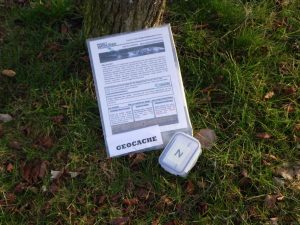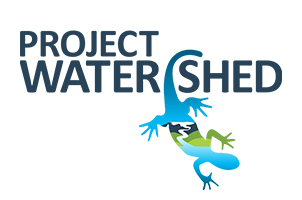
The basic idea of geocaching is to use coordinates, obtained from Project Watershed’s website, to locate the hidden containers (geocaches). Stashed in the containers are small items and in the case of Project Watershed’s geocaches, information on Project Watershed’s Puntledge River Fish and Wildlife Compensation Program (FWCP) funded restoration, assessment and protection projects. Additionally Project Watershed’s eight geocaches are labelled with a letter. Interested in playing? Here’s how:
1. Click here to access detailed information and coordinates.
2. Enter the coordinates of the geocache into your GPS Device.
3. Use your GPS device to assist you in finding the hidden geocache.
4. Write down the letter from each geocache, read the geocache information and return the geocache to its original location.
5. Arrange the letters to spell a word. E-mail this word to Project Watershed.
6. Get the word correct and we will contact you with details on how to pick up your free map.
7. If you take something from the geocache, please leave something of equal or greater value.
8. Tell us about your adventure. Find Project Watershed on facebook and share your geocaching stories and photos.
Rule #1. Be Safe. The PW Geocache will not be hidden in a place that will require you to place yourself in a risky situation or area. There are eight separate geocaches. The terrain and difficulty rating of these geocaches would be easy.
Before You Go
If you’re headed out on the trail, pack any needed supplies such as water, food and extra clothing. Bring both a map and a compass. PW geocache terrain is suitable for older children.
For safety, let someone know where you are going.
Do not forget your GPS and extra batteries.
Need a GPS? Consider renting one from The Mapping Centre www.maps.projectwatershed.bc.ca
Get Out and Play
Mark your car as a waypoint to ensure your safe return.
Be mindful of the environment, practice Cache In Trash Out.
Bring friends and family with you; sharing the experience can be very rewarding.
Remember that distances can be deceiving. A geocache can take longer to find depending on trails, rivers and other obstacles.
Funding for the Puntledge River Geocaching was provided by the Fish and Wildlife Compensation Program. (FWCP). FWCP, apartnership between BC Hydro, the Province of BC, and Fisheries and Oceans Canada, was established to address the historical effects of hydroelectric development on fish and wildlife.

